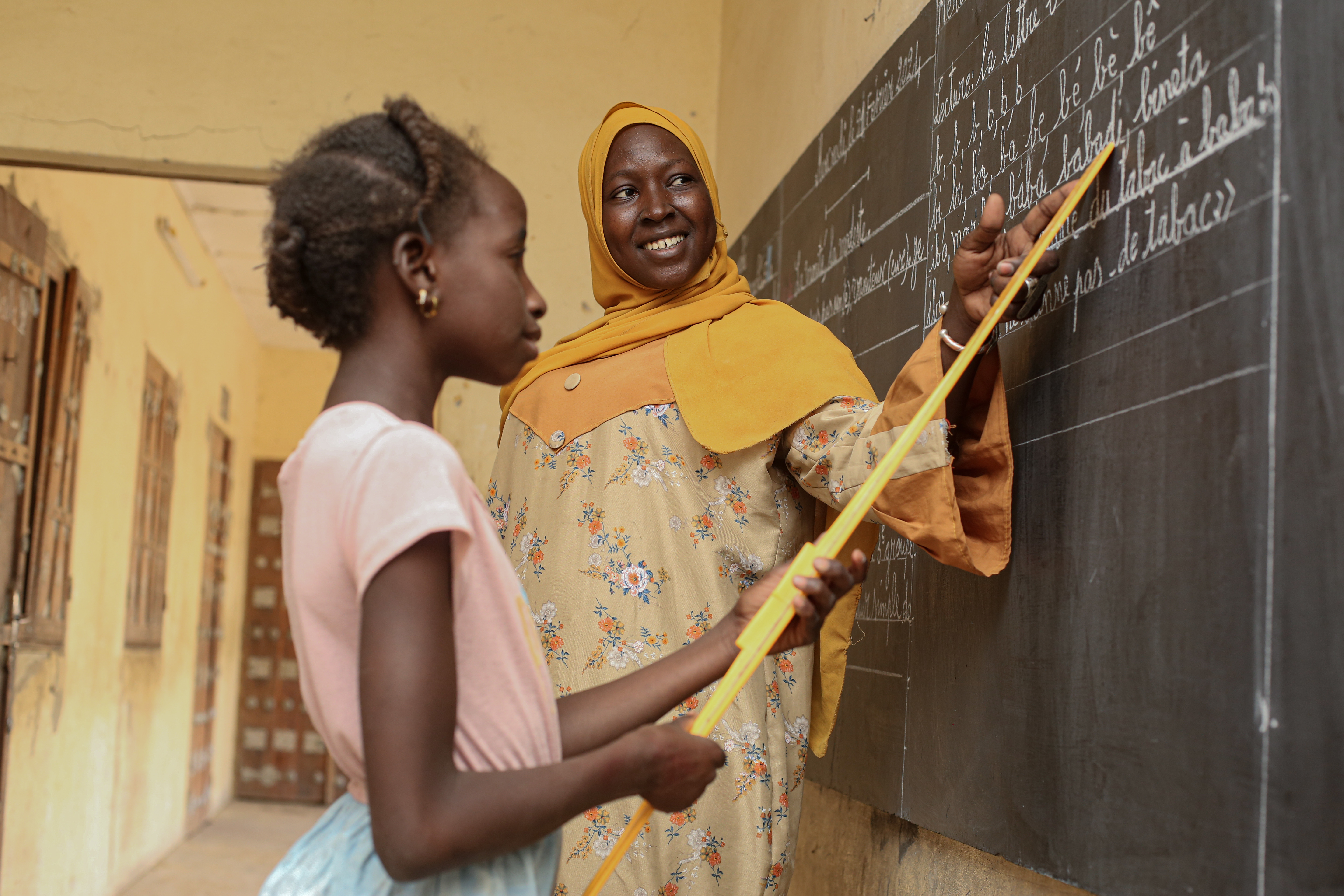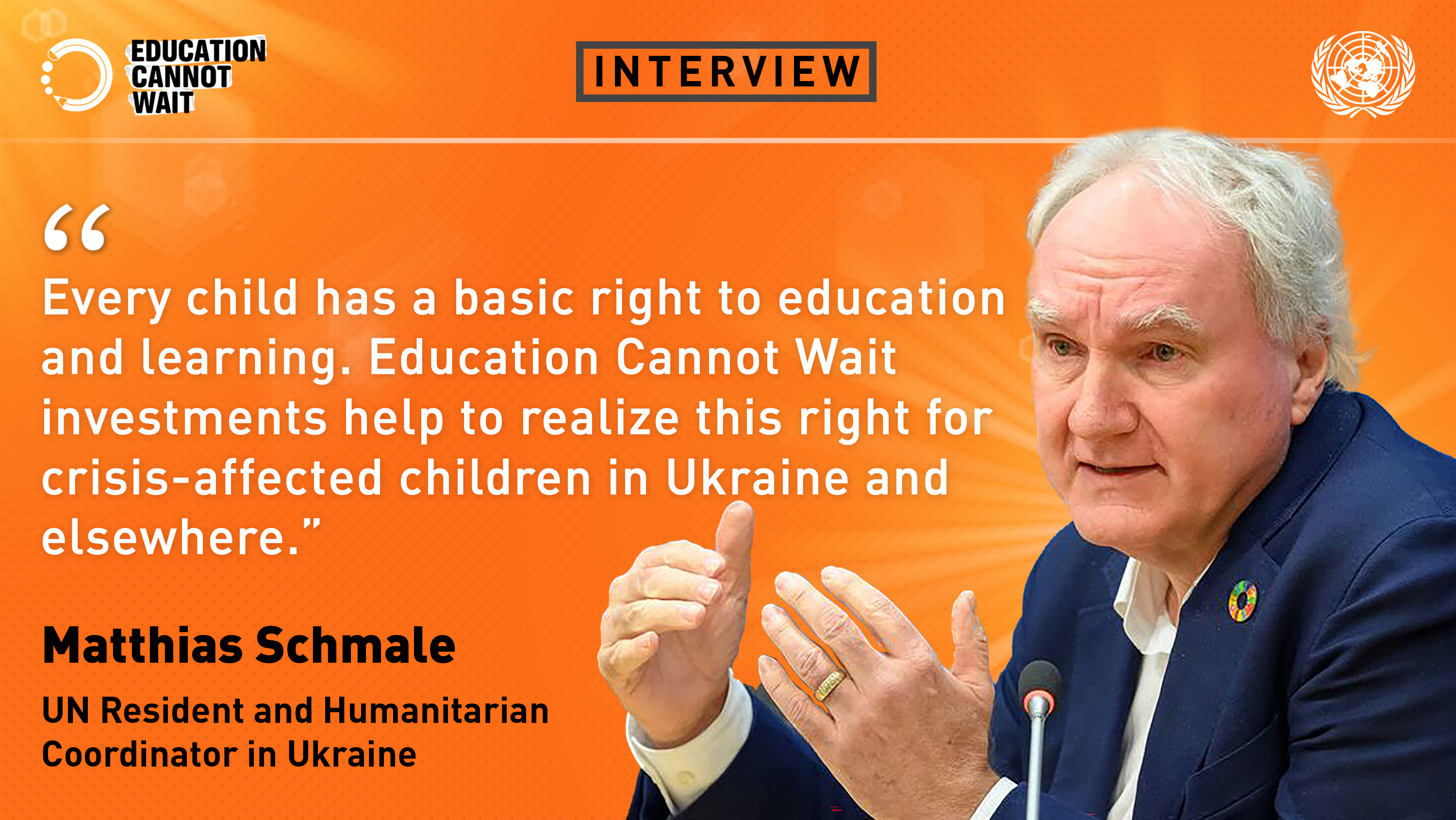What You Need to Know: Engaging in Country Allocations for the First Response Window

In April 2017, Education Cannot Wait announced US$20 million investment for seven crises through the First Response Window. This unique mechanism provides early funding support at the onset or escalation of a crisis, in order to reduce the impact of the crisis on education.
The First Response Window has 4 funding modalities:
1. Rapidly injecting funds at the onset of a crisis to meet immediate education needs
2. Matching funds for crises with a coordinated Humanitarian Response or Refugee Plans
3. Funding project proposals that support crises without a coordinated Humanitarian Response Plan
4. Needs assessments to support individual countries
Wherever possible, ECW aims to support catalytic investments and engagement. For example, strengthening advocacy to draw attention to lack of or under-funded education plans, particularly in forgotten crises; bringing a broader range of partners and plans together, and catalyzing longer-term collaboration; and leveraging non-traditional financing.
Additionally:
- Only organizations pre-accredited by ECW can receive funding through the First Response Window. While ECW develops its pre-accreditation process, partners in the meantime must be UNICEF HACT approved as an interim financial risk management approach.
- All First Response funds should be spent within one year of crisis onset or escalation (this does not imply all activities need to be completed by then).
- For each crisis, the Secretariat determines which of 4 modalities will be most appropriate to address the need.
For more information about the First Response Window, please refer to the Education Cannot Wait: Grantee Operating Manual. You can also view the webinar recording, “What is the First Response Window?”
US$20m Allocation & Country Consultations
Funds are being allocated to support educational opportunities for children and youth in seven crisis-affected countries: Peru, Central African Republic, Madagascar, Somalia, Ukraine, Afghanistan and Uganda*
*Countries were selected based on a methodology that assessed recent onset or escalation of crisis, severity of crisis, long-term education needs, levels of funding, and the potential for ECW engagement across the four modalities of the First Response window. The ECW Executive Committee approved the overall methodology and number of countries on 5 April; the seven crises were announced on 21 April, and the ECW Secretariat is now coordinating delivery.
ECW is identifying partners for each crisis, at country level, who are coordinators of emergency education response, to facilitate the process for project selection and funding (which will be different for each modality). ECW is committed to strengthening cooperation between humanitarian and development partners, as well as improving transparency and inclusivity. ECW is therefore keen for a wide, consultative process to determine use of First Response funding for each crisis. Coordinating partners will therefore launch open dialogues amongst all relevant partners in the field to recommend a set of projects to meet the funding envelope. These dialogues will be happening within a short time frame so that urgently needed funds can be distributed as quickly as possible to support the education needs of crisis affected children and youth.
Below are the dialogues that are being organized for each country, along with the contact details of the country focal points, where these have been confirmed. All organisations in the field are invited to participate. This will continue to be updated as more dialogues are planned. Partners are encouraged to share this information widely.
Please note that the first consultation meetings for Ukraine and Somalia will take place Friday, 16 June.
PERU (Modality 1)
An envelope of $250,000 USD has been allocated to Peru through a modality that will provide a quick injection of funds into the flood response in the north, with the objective of strengthening the overall education response.
CENTRAL AFRICAN REPUBLIC (Modality 2 & 4)
An envelope of $6,000,000 USD has been allocated to CAR through a modality that will match funds against the education component of the current CAR Humanitarian Response Plan (HRP).
Education Cluster Meeting, 21 July 2017:
- Date & Time: Friday, 21 July, 9:00
- Location: Ministry of Education -“STP Salle de Conference”, Bangui.
- For further information, please contact: Iker De Urrutia, Education Cluster Coordinator, CAR. Email: ideurrutia@outlook.com or phone +236 70009675
MADAGASCAR (Modality 2)
An envelope of $475,000 USD has been allocated to Madagascar through a modality that will match funds against the education component of the current Madagascar Humanitarian Response Plan (HRP).
- For more information, contact: Tracy Sprott, Education Custer Focal Point, Madagascar. Email: tsprott@unicef.org or phone: + 261 32 23 426 20
SOMALIA (Modality 2 & 4)
An envelope of $5,000,000 USD has been allocated to Somalia through a modality that will match funds against the education component of the current Somalia Humanitarian Response Plan (HRP).
Extraordinary Education Cluster Meeting
- Date & Time: Friday, 16 June, 9:00-11:00
- Location: Save the Children Somalia Office, Chalbi Drive, off Isaac Gathanju Road, Lavington, Nairobi.
- This meeting is open to everyone. An invitation has been sent out through the cluster email list.
- For more information, contact: Sara Skovgaard, Education Cluster Coordinator, Somalia. Email: sskovgaard@unicef.org or phone:+ 254 (0) 792 745 812 | + 252 (0) 612 487 651
UKRAINE (Modality 2)
An envelope of $1,350,000 USD has been allocated to Ukraine through a modality that will match funds against the education component of the current Ukraine Humanitarian Response Plan (HRP).
Education Cluster Meetings, June 2017;
Following consultations in Kyiv, Donetsk and Luhansk Oblast, the Education Cluster has submitted its Recommendation Report to the ECW Secretariat. The report outlines the current humanitarian situation in eastern Ukraine and details how existing HRP projects will meet the current needs and fulfill ECW criteria. The report is available here.
Once the Recommendation Report has been reviewed, the ECW Secretariat will begin negotiating project agreements with eligible partners.
- For more information, contact: Dmytro Sharaievskyi, Education Cluster Information Management Officer, Ukraine. Email: ukr.edu.im@humanitarianresponse.info or phone: +380 50 385 4990
Website: https://www.humanitarianresponse.info/en/operations/ukraine/education
AFGHANISTAN (Modality 3)
An envelope of $3,350,000 USD has been allocated to Afghanistan through a modality that will fund project proposals that support the education response for returnees, IDPs and affected host communities. Projects should align with the 4 strategic priorities of the Afghanistan Humanitarian Response Plan, particularly mitigating acute vulnerability in the medium term; supporting households to cope with prolonged humanitarian needs to prevent a further deterioration in their situation and improving humanitarian conditions in hard-to-access areas. Projects should equally advance the Afghanistan Education in Emergencies Working Group priorities for crisis-affected children and youth.
All interested partners, NGOs and INGOs are encouraged to apply for this funding opportunity.
The call for proposals will be open from 22 July 2017 – 12 August at 4:30 PM. All interested partners are requested to review the ECW guidelines, Afghanistan EiEWG guidelines, EiE standard package and MoE costing guidelines before preparing the proposals.
The complete proposal package (hard and soft copy) to be submitted to the following address:
- Address: Ministry of Education, Mohammad Jan Khan Watt, Kabul City, Afghanistan. General Directorate of Planning and Evaluation.
- Email: Mohammad Siddiq Majidi, Education in Emergency Focal Point: siddiqmajidi@gmail.com & copy tawassay.arian@moe.gov.af. Mobile: +93-707863626.
UGANDA (Modality 3)
An envelope of $3,350,000 USD has been allocated to Uganda through a modality that will full project proposals that support the education response for refugees, especially South Sudanese refugees and affected host communities. Projects should advance the priorities of the education section of the South Sudan Regional Refugee Response Plan and align with the Government of Uganda’s Refugee and Host Population Empowerment (ReHoPE) strategy.
Education Stakeholder Meeting, 18 July 2017: A delegation from Education Cannot Wait is travelling to Kampala to meet with education stakeholders and the working group for the First Response Window. Members of the ExComm, staff from the ECW Secretariat and the fund’s Director Ms. Yasmine Sherif will be in attendance. All partners are welcome to join the meeting but please RSVP in advance to hanlon@unhcr.org.
- Date & Time: Friday, 18 July, 9:30-11:00
- Location: UNHCR Office, Plot 11/13, Mackenzie Close, Off Mackenzie Vale, Kololo, Kampala
- To RSVP or for further information, please contact: Mary Hanlon, Associate Education Advisor, UNHCR Representation in Uganda. Email: hanlon@unhcr.org or phone:+ +256-312-231200 | +256-772-701003
For additional questions, please email info@educationcannotwait.org.



